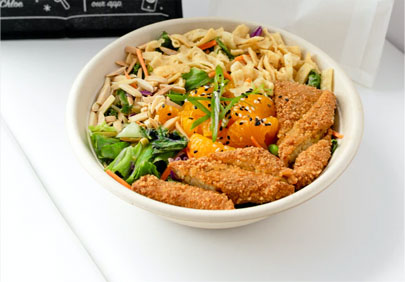- Meal Delivery
Shop by Category
TOP PROVIDERS
POPULAR SEARCHES
Meal Finder Tool

Use our meal finder quiz to find the best meal delivery service for you.
- Vitamin & Supplements
- Deals
- About
- Blog
WellHub tries, tastes and tests products we recommend. When you buy through our links, we may earn a commission. Learn more >
Quiz
Quiz

By
Alex Hamlin


Alex Joy Nutrition supports busy individuals with health goals, offering holistic nutrition guidance to reduce stress and foster balanced, healthy habits. Specialising in empowering high achievers, Alex emphasises a preventative and management-focused approach to health. As a clinical nutritionist, Alex provides individuals with tools and education for taking control of their health. She advocates for optimal nutrition as the cornerstone of wellness, employing a food-first approach complemented by holistic treatments. With evidence-based practices, Alex offers personalised guidance to help individuals reach their health goals, prioritising health at the forefront. In health content creation, Alex delivers concise, informative, and engaging material rooted in evidence-based practices, educating, inspiring and guiding others on their wellness journey.
Updated January 5, 2021
Fact checked
Fully qualified and expert nutritionists have reviewed and checked this content to ensure it is as accurate as possible at the time of writing.
Get personalised meal recommendations
Compare Quiz
Advertiser DiscolureNo products were found matching your selection.
What is a meal delivery service?
A meal delivery service sends customers ready-to-eat meals or fresh and frozen pre-portioned ingredients with easy to follow recipes delivered to their location of choice. A meal delivery service is personalised to suit individual tastes, dietary preferences and health goals.
Meals may come cooked and ready to heat/ eat or ingredients are pre-portioned and labelled in order to quickly cook and assemble a meal. Recipes are foolproof – simple, clear and easy to follow.
Most meal delivery services operate via a subscription-based model yet some can be ordered individually. Each food box or ready-made meal from a meal delivery service usually combines the efforts of chefs, nutritionists and grocery shoppers to deliver creative menus suitable to a range of dietary preferences to make healthy eating easy.
Are all meal kits healthy?

Meal kits/delivery services have been analysed for their nutritional quality and they were found to provide adequate serves of core macronutrients however there is always room to improve to meet Australian dietary guidelines.
A study in 2019 by the Univerity of Sydney analysed a random selection of 12 different meals from a number of meal subscription services. The nutritional composition of each meal was obtained and the conclusion was made that meal kits were shown to be a good source of vegetables yet they may be too high in fat and salt and could do with more fibre.
Meal kits are a good substitute for takeaway and convenience foods and even some home-cooked meals and often have health-promoting qualities. Keep in mind each provider offers recipes that are health conscious and also indulgent. There are a wide variety of recipes considering a number of different dietary requirements and each provider varies. Overall they provide a quick, easy and convenient solution to fuss-free healthy eating.
Pros and Cons of meal subscription services

Pros
- Convenient and simple solutions - Meal delivery kits are convenient, simple and flexible, allowing individuals access to healthy, fuss-free meals to support their lifestyle.
- Minimal food waste and easy preparation - Labeled pre-portioned ingredients in exact quantities means little to no food waste as well as quick and easy food preparation.
- Recipe cards with easy to follow steps - Step-by-step recipe cards are included in meal delivery kits for foolproof meal preparation and execution.
- Local ingredients & lot’s of options - Meal delivery providers aim to source ingredients that are fresh and local and endeavour to provide a variety of options for all taste and preferences.
- Time saver - A meal delivery provider means less shopping and less preparation when it comes to creating healthy meals at home.
- Learn new recipes, techniques and feel inspired - Meal delivery services provide easy to follow cooking instructions with each meal. This gives you the opportunity to cook new recipes, learn new cooking techniques and feel creative and inspired in the kitchen.
- Meals are more nutritious than take-away and convenience foods - Meal delivery services often combine the efforts and expertise of chefs and nutritionists/dietitians to create healthy nutritious meals aiming to adhere to Australian dietary guidelines. You’ll find they are more nutritious than take-away meals and store bought convenience foods.
- Portion control - Depending on your personalised health goals, meals may help individuals with portion control and overeating as meal delivery services provide the right amount of ingredients to meet your chosen number of meals per week.
- Save money by eating at home more often - Meal delivery services are a great way to save money on eating out and convenience foods by holding you accountable to cooking and eating at home more often.
Cons
- Lots of packaging - As each ingredient is pre portioned and individually wrapped this means an excess amount of packaging and differs between provider.
- Can be expensive depending on the service - Of course, price will vary depending on how many mouths you’re feeding (e.g. single or a family). Prices vary depending on the chosen provider and number of meals ordered each week.
- May not meet dietary preference - Meal delivery services aim to cover as many dietary preferences as possible yet some may not cover every preference. Check closely with the meal delivery provider to see if your preference has been met.
- Some providers may lack the desired amount of vegetables per serve - Meal kits are shown to be a source of vegetables and may include more than home cooking and take-away/convenience foods. Yet it is evident from studies that there is room for improvement and the average meal could do with more fibre.
- Meal sizes and satisfaction - Most meal delivery services make the same size meal for all and as we know no individual is the same when it comes to health. Portions may not leave you feeling satisfied and satiated, yet this will depend on a number of factors from your personal needs, the meal provider and proposed portions.
- Ingredients are perishable - When ordering from a meal delivery service you need the space to store your meals as ingredients are perishable.
- You will still spend time cooking - Of course meal delivery services aim to help you save time when it comes to preparation and cooking and this rings true with ready-made meals. It’s important to remember if you are choosing meal kit’s you will spend approx 30+mins cooking the meals.
Key factors to consider when comparing meal services
When choosing the right option for you, consider the following factors:
Meal Customisation
Meal delivery services cater to different dietary requirements and preferences. Some are specifically designed in alignment with certain diets e.g. vegan or paleo and some cater to support health conditions e.g. diabetes. If you have allergies or intolerances there are often gluten free or lactose free options. To determine if a meal provider caters to a specific dietary requirement its best to check with the service directly.
Quality & Taste
Food quality, freshness and taste is a key factor when choosing the appropriate provider. Some providers choose to keep meals fresh, not frozen and vice versa. The best way to find out is to access user reviews and of course try it yourself. Most providers promise chef created, delicious meals yet this differs between providers. Start by taking the meal kit quiz to compare providers.
Cost & Conditions
The price per week/meal varies greatly between each meal delivery service. It’s important to compare the weekly cost of your chosen meal delivery with your average supermarket shopping costs per week. Always check the terms and conditions of the meal provider as subscriptions, lock-in’s and minimum spend amounts etc. may differ between each provider. Check the FAQs on the providers page or reach out to their customer service team.
Sustainability
Many Australian providers focus on local produce, aim to reduce food waste and look for ways to minimise packaging or make products more sustainable. A recent study found that meal kits have a lower overall carbon footprint than the same meals purchased in a grocery store, despite what feels like more packaging when receiving a meal kit. It was found that pre-portioned ingredients and a streamlined supply chain lower the overall food loss/waste for meal kits. Check directly with providers to understand their efforts to be more sustainable and eco-friendly.
